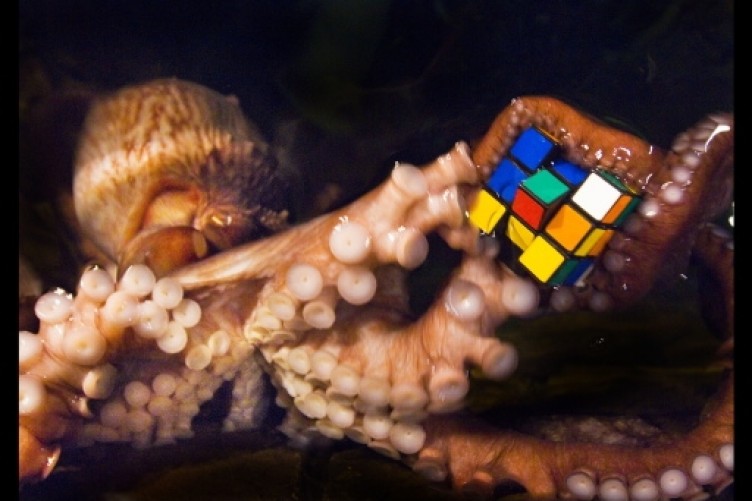octopus intelligence
It is known that the Octopus possesses very high intelligence and is different from the intelligence of mammals as its nervous system is decentralized and operates in different ways than our nervous system. The goal of the experiment was to find out if the octopus could identify and save faces. The phenomenon of preserving faces is a characteristic of social organisms as they have to identify and deal with group members based on their place within the social structure of the group. But the octopus is a non-social animal and spends his life in isolation. The life of the octopus is very short compared to how smart he is and when he finds a partner for sex and then he stops eating until he dies. Well, let's talk about the experience and its outcome.
The group hunted eight octopus from the Indian Ocean and was placed in the Seattle water-revival complex. Each octopus has been placed in an isolated private basin for any other object for two weeks, the researchers have carried out the following process.
All researchers wear the same clothes (same color and type). A researcher who treats the octopus well is identified where he feeds him and a researcher who disturbances the octopus with a small stick that he touches nicely with, but a bit annoying. Every day, researchers monitor the octopus's movements during the interaction process and how it behaves before and after the experiment.
At the beginning of the experiment the octopus was escaping and hiding from both researchers equally and no difference in the amount of inks secreted by the octopus and defensive movements was observed from camouflage (false eye) when dealing with it. After several days of interaction with the octopus by the same researchers it was observed that the octopus was approaching the seeker who feeds him but he was fleeing from the seeker who uses sticks to disturb the octopus.
Personal feedback on the experience:
The result of the experiment may be questionable and I feel it because the octopus is a non-social organism as I mentioned earlier, which means that the mechanism of facial discrimination has no evolutionary benefit. I think the octopus could distinguish the researchers by monitoring their chemical signature. We simply do not know all the abilities of the Octopus on chemical analysis and the assumption that the octopus uses the visual sense to characterize its surroundings is a limited human thinking. I think the octopus can distinguish people through another property.
It is known that each organism has an unparalleled chemical signature because this signature embodies the mixture of bacteria and parasites that live within the body of each organism and this mixture varies among all neighbourhoods. When the seeker put his hand in the water The Octopus can monitor this chemical mixture of the researcher's body and thus identify it and determine the appropriate strategy to deal with it.
In case I'm in charge of this experiment, I was asking the same seeker to experiment with a mask and sometimes without a mask. That's how we adjust the control variable better. We determined that the facial selection process is what the octopus is doing, not another chemical monitor.
